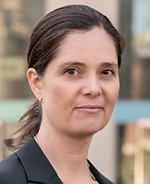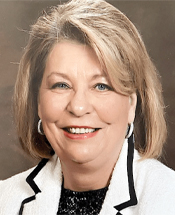 With the new year comes an important milestone for the membership of the American Health Care Association and National Center for Assisted Living (AHCA/NCAL) and the broader provider community: in 2025, the Center for Long-Term Quality & Innovation, a research center within Brown University School of Public Health, will see its 10th anniversary. The center—or Q&I, as researchers call it—has proven itself vital, with a growing portfolio of projects, educational initiatives, and resources that represent the cutting edge of interventional research.
With the new year comes an important milestone for the membership of the American Health Care Association and National Center for Assisted Living (AHCA/NCAL) and the broader provider community: in 2025, the Center for Long-Term Quality & Innovation, a research center within Brown University School of Public Health, will see its 10th anniversary. The center—or Q&I, as researchers call it—has proven itself vital, with a growing portfolio of projects, educational initiatives, and resources that represent the cutting edge of interventional research.
Established in 2015 with $1 million in seed funding from AHCA/NCAL, Q&I has a simple goal: to improve care for older adults, focusing in particular on those living with dementia and those receiving post-acute and long term care. “Older adults are a chronically ill and vulnerable population of people often excluded from trials,” explained Rosa Baier, MPH, the center’s director. “We’re interested in how we develop effective partnerships and implement changes that are practical and feasible in real-world conditions.”
Baier, who earned her master of public health from Brown, describes herself as an “improvement scientist” deeply concerned with pragmatic research—the development and implementation, in close collaboration with health care providers, of interventions that are designed to be “useful and used” in the real world. She runs the center with input from an advisory council of leaders within both the academic and provider communities, including several former AHCA/NCAL board chairs.
“We were moving along before Rosa joined as our executive director, but, once she joined, it really took off,” recalled advisor Mary Ousley, chief strategy officer at PruittHealth and a former AHCA board chair. “That's when we started getting the large funding grants to do the level of research and investigation that we had all hoped for.”
 Key to the center’s approach is its unique position at the crossroads of academia and the health care industry, which allows it to investigate and respond to real-world conditions as they emerge. “Part of what's distinct about Q&I and how we operate is that we're really trying to use methods to engage our provider partners as active collaborators,” Baier explained. “We try to learn about the realities and needs on the front line in a way that helps to surface research questions from the bottom up, rather than helicoptering in with ideas and trying to recruit research participants.
Key to the center’s approach is its unique position at the crossroads of academia and the health care industry, which allows it to investigate and respond to real-world conditions as they emerge. “Part of what's distinct about Q&I and how we operate is that we're really trying to use methods to engage our provider partners as active collaborators,” Baier explained. “We try to learn about the realities and needs on the front line in a way that helps to surface research questions from the bottom up, rather than helicoptering in with ideas and trying to recruit research participants.
“Our ability to be nimble and responsive, which is aided by our ongoing collaboration with AHCA, has enabled us to really learn about the environment, the research priorities, and then incorporate that into what we do,” she added.
Real-World Research, Real-Time Results
Look no further than the center’s work during the early days of the COVID-19 pandemic for an illustration of this pragmatic approach. Leveraging their relationship with AHCA/NCAL, Baier and her team conducted a survey of a large audience of providers within the first three months of the pandemic. Another month later, it published early findings about the conditions faced by frontline workers,1 and then a peer-reviewed paper less than six months after that.
“We were the first to describe the frontline experiences of staff working in nursing homes during the pandemic,” Baier recalled. “Not only did we disseminate information quickly, but those findings reflected experiences in the earliest days of the pandemic and laid out issues that are still being explored by research across the country.”
During that same period, the center worked closely with PruittHealth to study the potential benefits of air purifiers2 on COVID-19 outcomes. Ousley said, “[PruittHealth was] among the very first in those first few weeks to put air purifiers in our centers, long before we were getting any financial support. It showed that it decreased the incidence of individuals in our centers, both residents and staff, who got COVID. And we still have air purifiers in our centers.”
Ousley also spoke fondly of Q&I’s Music and Memory3 study, a five-year trial finding that personalized playlists may have psychological benefits for residents with dementia. “In our organization, we had a very enthusiastic young staff person that spearheaded this for us,” she said. “He would call and talk to me and say, ‘You just can't believe what happened today. Mrs. Smith is agitated, and she fights when we try to give her a bath or provide care for her. If we turn the music on and enjoy the music with her, that agitation goes away.’”
This study is yet another illustration of the center’s pragmatic approach to research, in which interventions are delivered by caregivers instead of researchers, offering insight into the effects on patients and workers alike.
A ‘Successful Partnership’
Looking back over the last 10 years, AHCA/NCAL Chief Medical Officer Dr. David Gifford reflected on the “successful partnership” between AHCA/NCAL and Q&I, which has served as a funded partner for multiple projects. (Member organizations have served as funded partners for even more.)
“[This arrangement] doesn’t just work with Brown faculty,” Gifford pointed out. “It reaches out to people outside of Brown to form research partnerships. It opens up the door, because one of the challenges in doing this type of research is having good, accurate data, which is often costly, timely, and a burden to our members.”
 Reducing those barriers to conducting quality research is one of the center’s top priorities. To that end, it provides training and infrastructure grants, research funding, and resources like the Long-Term Care Data Cooperative, a massive initiative assembling electronic medical record (EMR) data from nursing homes around the country in near-real time, enabling research, public health surveillance, and population health analytics. (Learn more at LTCdatacooperative.org.)
Reducing those barriers to conducting quality research is one of the center’s top priorities. To that end, it provides training and infrastructure grants, research funding, and resources like the Long-Term Care Data Cooperative, a massive initiative assembling electronic medical record (EMR) data from nursing homes around the country in near-real time, enabling research, public health surveillance, and population health analytics. (Learn more at LTCdatacooperative.org.)
This project originated in an early-pandemic effort to gather EMR data from nursing homes and examine how COVID-19 presents in residents. “It started with one corporation, then grew to 12 corporations, and that became the foundation for the Long-Term Care Data Cooperative, which is now available to researchers across the country to conduct effectiveness research,” Baier said.
Another important initiative is the Learning Health Systems Rehabilitation Research Network (LeaRRN),4 which partners researchers with health systems to advance research designed to improve quality of care. Three LeaRRN Learning Health Systems Scholars have worked or are working with AHCA-affiliated organizations on their research, which will yield important benefits for both patients and systems.
“Each scholar is paired with an academic mentor and a health system mentor,” explained Linda Resnik, LeaRRN’s director and a professor of Health Services, Policy and Practice at Brown. “This work is exciting because it is guided by the questions and needs of the health system. Thus, the knowledge produced is likely to produce actionable insights and improvements in care.”
It Takes a Village
As she celebrates the center’s 10th anniversary, Baier credits her team’s partnerships within Brown and the broader provider community for helping to realize the vision with which she set out a decade ago.
“It takes a long time to develop those relationships, so I feel like 10 years have passed quickly,” she reflected. “We now have momentum that we’ll carry forward for the next 10 years as we continue to surface research priorities from the communities we’re partnering with, and work together to elevate quality of care for older adults.”
References
1. https://pmc.ncbi.nlm.nih.gov/articles/PMC7685055/
2. https://pmc.ncbi.nlm.nih.gov/articles/PMC10247880/
3. https://www.brown.edu/news/2017-05-10/music
4. https://sites.brown.edu/learrn/